Star-of-the-sea fundraiser: support the preschools in Inayawan landfill site, the Philippines
In the dump site of Inayawan, Cebu, 8 preschools welcome 106 children and 19 mums trained to be childminders.
An estimated 250,000 street children live just in Manila, the capital city, and millions more children have been abandoned in the country (source: UNICEF). These children have no access to any form of education, as school is too expensive. They lack basic necessities and have long been abandoned by the government. As working is the only viable option to afford food, over 2 million children work in the Philippines (source: International Labour Organization).
To face this crisis, local social services only have access to shelters for the night, where street children are placed for the night if they are found after the curfew. These shelters offer poor conditions for the children, and do not provide any education, nor any long-term solution. Most street children thus do their best to avoid encounters with social workers.
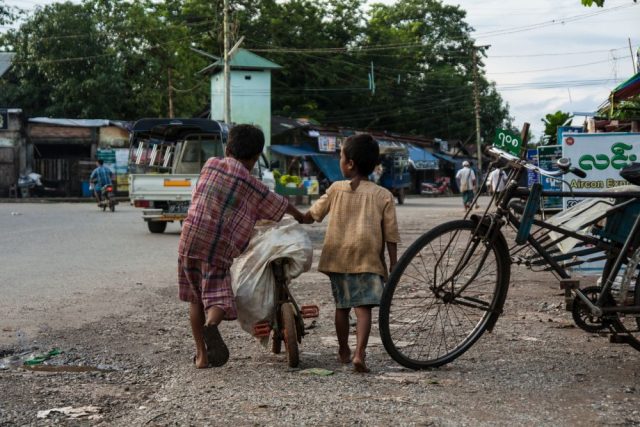
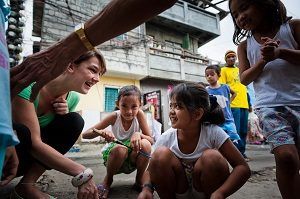
This tremendous poverty leads to high rates of small crimes and frequent encounters with the police. This leads to a lot of abuse: underage jailing, arbitrary detention and torture, although all illegal, are frequent and detention conditions are horrible. Cells are overcrowded, facilitating abuse by older prisoners, having no running water and insufficient food.
The current short-sighted view of the problem, solved by police and jailing, does not work, and for the street children of the Philippines, the situation can only go downward. Poverty leads to encounters with the police, small crimes, jail, and sometimes trafficking.
Learn more about our privacy policy here.

The number of street children in the Philippines is staggering and has been steadily increasing in recent years due to a combination of factors. Rural exodus, sometimes forced by earthquakes and typhoons that are common in the region, pushes poor families from the countryside to larger cities, especially Manila in hope of better living conditions. But opportunities are scarce, and, once there, the parents end up unemployed, in even more dire conditions than before. This extremely poor population gathers in slums, where many street children come from. Social misery often arises from these difficult conditions. Facing broken families, alcoholic parents, drug abuse and violence, children leave there homes trying to find a marginally better situation on the streets
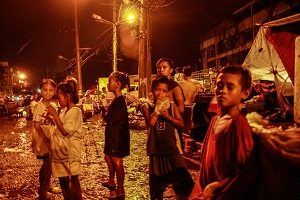
This already alarming situation has been aggravated by the brutal war on drugs of ex-president Rodrigo Duterte (in office between 2016 and 2022), who rose to power promising to end drug trafficking in the Philippines, going as far as to encourage citizens to kill drug abusers. This war on drugs reduced drug trafficking in the country at a tremendous cost. Over the span of a few years, this policy caused an estimated 20,000 deaths by law enforcement, and 500,000 people were jailed, leaving 500,000 children on their own, often turning them to street children. This policy encouraged police abuse and arbitrary executions and is thus investigated as a possible crime against humanity by the International Criminal Court.
On top of this indirect effect, the war on drugs also directly targeted street children, with a few thousand kids jailed for drug incidents, and an estimated 200 killed during the war. To pursue its retaliation against drugs at all levels, the government tried to reduce the legal jailing age from 15 to 12, to legalize underage jailing in the country. Despite the promise of Duterte’s successor Bongbong Marcos to favor prevention and rehabilitation, the war on drugs has not ended, and its consequences are still dire for the street children of the Philippines.
This already dire situation for the street children of the Philippines has not improved with the Covid-19 pandemic, which has seen a huge rise in unplanned pregnancies, notably among street teens, due to their lack of education and lack of access to contraception. This both led to a degradation of conditions and increased the number of street children.
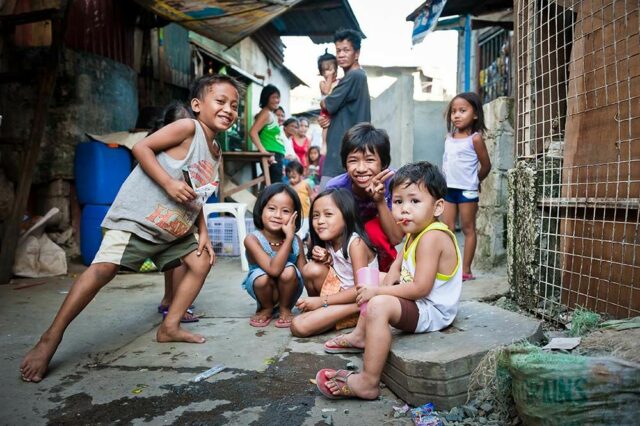
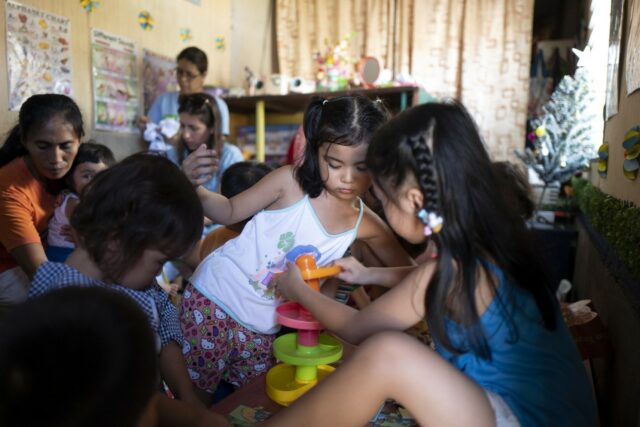
Acting now to help street children in the Philippines is essential, and an effective solution must both cover their short-term needs, by providing food, shelter and basic necessities, but must also cover long-term needs by providing them with an education, to break the cycle of poverty and give them a chance at a better future. To this end, the child education charity Children of the Mekong has already sponsored 3,600 children in the Philippines, offering essential education and resources.
Join us now, and help us get more children out of the street of Manila, by sponsoring a child for £28/month
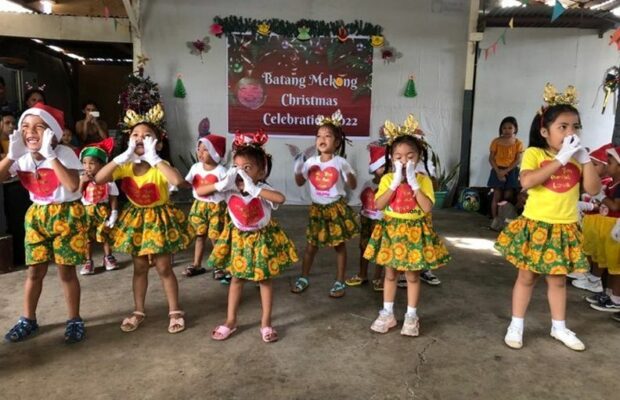
In the dump site of Inayawan, Cebu, 8 preschools welcome 106 children and 19 mums trained to be childminders.